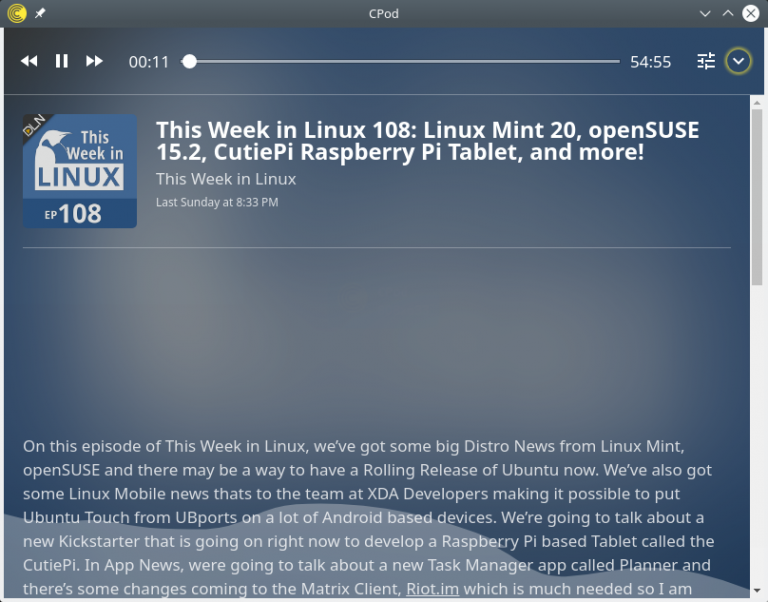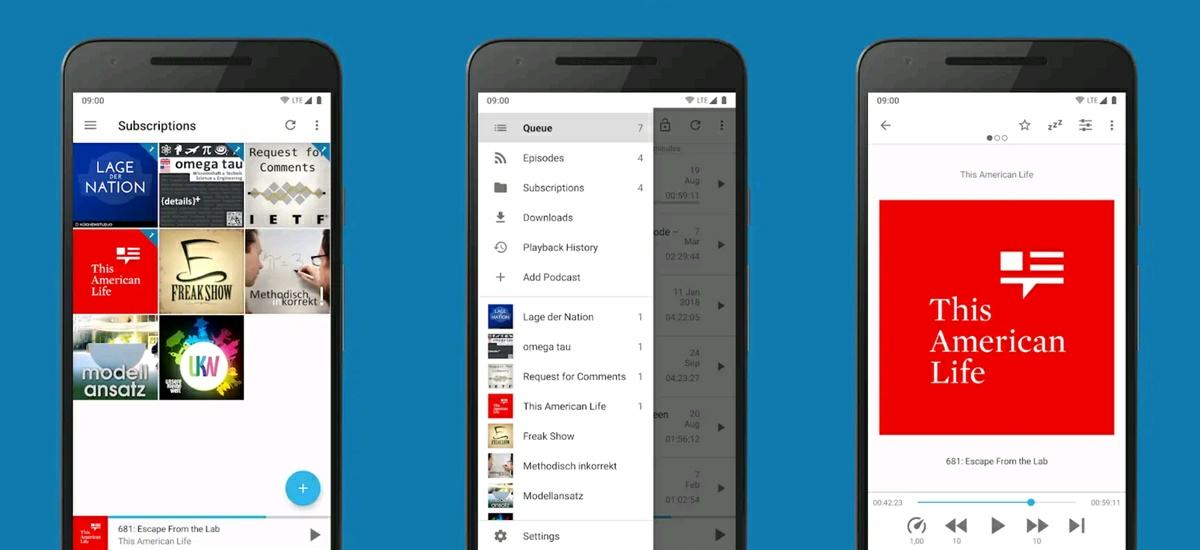
There’s also a useful slider which lets you delete played episodes after a set period or once you have listed to an episode. Besides changing the audio and video players, users can synchronize with, and define the time for updates.
#GPODDER APP SOFTWARE#
The software is very configurable, there’s lots of setting in preferences that you can tailor the software to how you like it. But in Linux, you’ll need to enable the toolbar (View / Toolbar) before you can access them. In Windows, you can access the preferences from the gPodder menu. There are a few inconsistencies between the Linux and Windows versions of the software such as differences in the menus. Ideally, on the first run of the software, the software could prompt users to pick their audio and video player. You can then stream episodes without having to download them. In my case, I changed the audio and video players to vlc. To stream an episode you must change the audio and video player (in Preferences) from default application to a specific application. By default, it’s true the stream option is greyed out.

For example, new users to gPodder may think they have to download an episode before listening to it. There are a few idiosyncrasies in the software. More useful is gPodder’s search facility which is a boon in discovering new content. For example, the top entry “Linux Outlaws” stopped doing new shows in 2014. Accessing Subscriptions / Discover New Podcasts offers a curated Top 50 podcast list, although the choices aren’t ideal. And gPodder is particularly strong in this area. When you’re starting out in the podcast world, it really helps to have a client that makes it easy to discover interesting podcasts. The dark grey number indicates the number of podcasts downloaded for that particular feed. The light grey number shows the number of podcasts that have been downloaded which haven’t been listened to. I particularly like how feeds are appended by two numbered symbols.

The interface is well-thought out and clean. The above image shows gPodder in operation. As the software is written in Python, you can run it from a source checkout.
#GPODDER APP CODE#
Normally I prefer compiling the source code of a project, but there’s no need with gPodder. I’m a fervent Manjaro user, and their community repository offers a convenient package for gPodder, which installed without a hitch. The developers of gPodder don’t produce packages for current releases citing a “… sorry state of packaging on Linux distributions, and incompatibilities even between e.g. For Linux users, most good distributions have packaged the software.
#GPODDER APP PORTABLE#
The developers provides binaries for macOS and Windows with the latter getting a portable version too. GPodder is a cross-platform utility running on Linux, macOS, and Windows operating systems.

The software is very mature it’s been in development since 2005. It lets you listen to podcasts on your computer or on mobile devices. The software package also includes a command-line interface which is called gpo. The software is written in Python and sports a simple GTK interface. GPodder is an open source tool that downloads and manages free audio and video content (“podcasts”) for you.


 0 kommentar(er)
0 kommentar(er)
